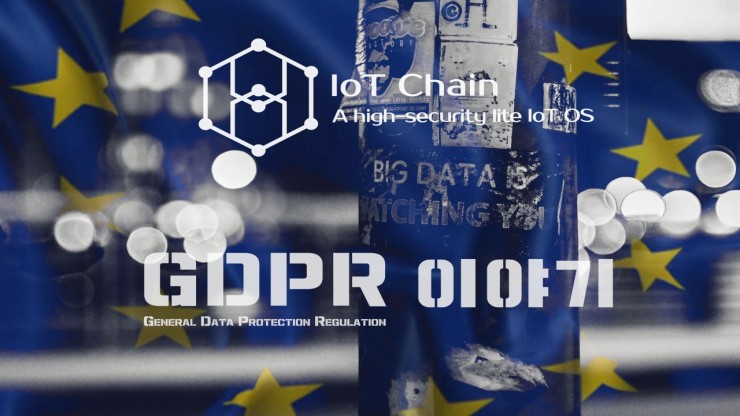
With the ascent of the IoT and related advancements, for example, Robotics, AI and Big Data, new administrative structures are conveyed during a time where information is considered as gold. In addition, the Internet of Things needs particular consideration in the extent of, among others, the GDPR and the ePrivacy Regulation.
The General Data Protection Regulation (GDPR) breaks new ground with regards to security law. Following quite a while of hidden breaches, identity theft taking care of, and organizations will at last be compelled to quit fooling around about information security.
The imposition of GDPR in Data Security:
Data loss incidents are expected to r keep running as high as four percent of worldwide turnover, or €20 million, whichever is higher. Be that as it may, there is still no particular direction for the determinedly developing, and lethally reliable IoT. In 2017, The European Union Agency for Network and Information Security (ENISA) found that there were no "legal guidelines for IoT device and service trust.
The present shrewd workforce are getting individual gadgets into their work environment with the undertaking to complete their activity speedier. Makers are building associated knowledge in their items to make them stickier and more deliberate. IoT is a market that doesn't hint at any backing off. The IDC predicts that there will be 200 billion associated gadgets by 2020 and if benchmarks remain a similar that could mean billions of security vulnerabilities. The Mirai infection exhibited how IoT gadgets with default settings can be helpless against contamination and this malware has been utilized as a part of DDOS assaults. Also, there are more malignant variations in progress, for example, those that presently intend to target ARC processors inserted into a wide cluster of Linux-based gadgets.
It may at that point, be a smart thought to permeate IoT security with the sort of weight that the GDPR will soon give individual information. In any case, for what reason hasn't that happened yet?
The relation between GDPR & IoT:
While GDPR does not have much that specifically stands up to the issues of the IoT. It directs the utilization of individual information, in accordance with the IoT be that as it may, the GDPR still doesn't call the issue by its name. For instance, GDPR will consider you responsible for your security vulnerabilities, outsiders and individual information taking care of resources for ensure that they are additionally GDPR agreeable. That will incorporate IoT gadgets, however those particular concerns will be weakened among a blend of other security contemplations.
The last bit of EU information insurance direction came in 1995. The GDPR, for instance, was first proposed in January 2012 and it assumed control four years previously it was received by the European parliament. The point here is that control can be ease back to manage change. Initially, legislators need to get twist of an issue, start to comprehend it and after that fastidiously draft protracted records troubled by bureaucratic obstacles, legitimate contemplations and contending interests.
The GDPR holds supranational authenticity more than 28 isolate nations and applies not exclusively to bodies which are situated in those nations yet encapsulate clients. Considering the EU is as yet the world's biggest market, this makes the GDPR not simply European direction but rather a worldwide one. Except if national controllers can influence outside producers to do what they say, direction on IoT security will be difficult to accomplish. This could be particularly troublesome as universal supply chains will demonstrate an issue, the same number of IoT gadgets are fabricated in nations prized for their low administrative obstructions - enabling retailers to acquire the shoddy brilliant gadgets that customers and private venture hunger for.
There are a few signs toward IoT security direction. In April 2017, in the US the Californian state government presented enactment for IoT security and the French government is peering toward recommendations to make IoT makers obligated for the security of their items. Until at that point, it profits the business to build up a business IoT security testing standard and offer accepted procedures for IoT chance alleviation. For instance, ISCA Labs, an ISO-authorize, free, outsider analyzer has distributed an IoT testing system. For instance, endeavors have utilized system get to control (NAC) innovation to sustain IoT barriers, uphold arrangements for unsanctioned IoT gadget utilize, and moderate danger of malware multiplication, organize introduction, and delicate information spillage.